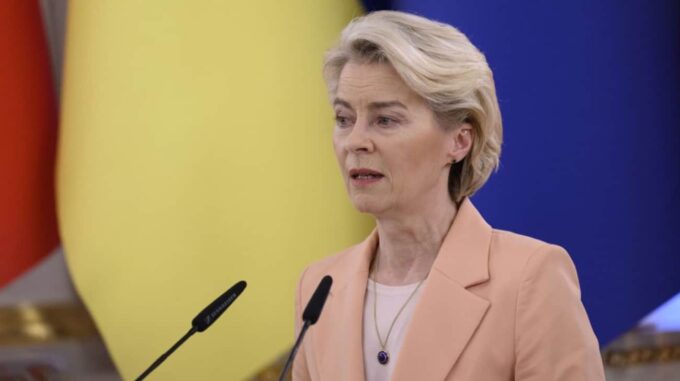Ursula von der Leyen: Putin is not ready for peace, sanctions need to be intensified

Ahead of the European Political Community summit taking place in Tirana, the leading European diplomat Ursula von der Leyen made a sharp statement regarding the intentions and actions of Russian leader Vladimir Putin. According to her, the recent steps by the Kremlin indicate its unwillingness to resolve the conflict through diplomacy and to move toward peace. She emphasized that to achieve this goal, it is necessary to strengthen sanctions against Moscow, as there are currently no timeframes for peace negotiations. Ursula von der Leyen pointed out that Putin previously used rhetoric about peace – but these statements did not match his actions. Specifically, in early May, the Russian president called for a ceasefire, doing so on the eve of Victory Day on May 9. However, within a few days, he reneged on that promise, continuing to escalate the conflict. An important next point is that Ukraine, with the support of the EU and the USA, called for a 30-day unconditional ceasefire to create a window for negotiations. Putin ignored this call, focusing instead on continuing hostilities. Particularly noteworthy at the summit was a proposal – reportedly, Putin suggested holding bilateral talks between Ukraine and Russia in Turkey. Volodymyr Zelensky was ready for a meeting, but the Russian president did not show up for negotiations. According to von der Leyen, this further confirms the Kremlin’s true intention: to avoid peace and perpetuate the conflict indefinitely. "The refusal to meet and the ignoring of calls for peace demonstrate that Putin is not seeking a diplomatic resolution," she stated. Given this situation, the European Union announced its intention to introduce a new package of sanctions, which will strengthen existing measures. These actions will include sanctions against the Nord Stream 1 and Nord Stream 2 pipelines, which have a significant impact on the energy security of Russia and the EU. Additionally, the new sanctions list will include more vessels of the Kremlin’s “shadow fleet,” involved in circumventing bans, as well as restrictions on oil prices, including lowering the upper limit for Russian oil. An equally important aspect is the expansion of sanctions on the Russian financial sector, aimed at increasing economic pressure to compel the Kremlin to return to negotiations. "We seek peace, but to achieve this, pressure must be increased," said Ursula von der Leyen. "Until the Russian president shows willingness to compromise and cease aggression, our measures will continue to escalate. Only through economic and political pressure can we force him to change his stance and return to diplomatic talks." Regarding expectations for the European Political Community summit, experts unanimously agree that the main topic will be intensified sanctions against Moscow. This is already the second such forum within the framework of the EPC – the previous took place in November 2024 in Budapest, where participants laid the groundwork for further tough pressure on Russia. Now, the focus of the talks is centered on specific legal and economic measures aimed at expediting the end of the war and returning to diplomacy. Given military activity and diplomatic challenges, expectations are growing that a new EU strategy for countering Russia’s aggression will be formed at this summit. Strengthening sanctions and political pressure should demonstrate that the EU remains a unified front in defending international standards of peace and security. Participants emphasize that such radical steps are necessary not only to support Ukraine but also to send a signal to the Kremlin – military aggression and refusal to pursue diplomatic solutions will not go unpunished.

